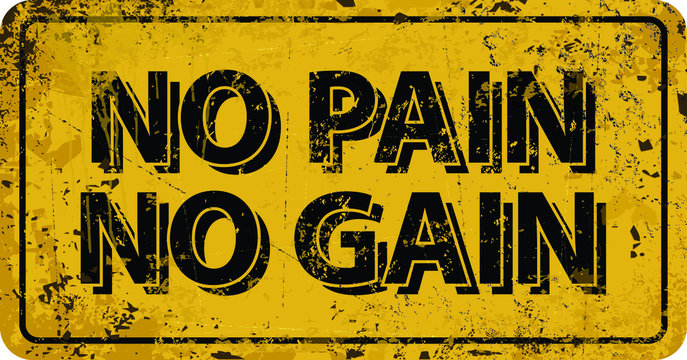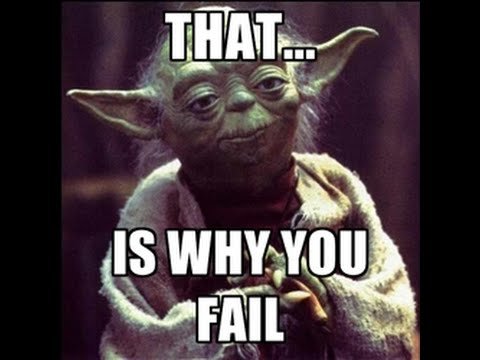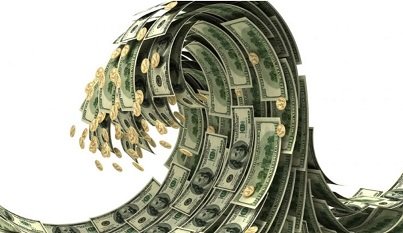
Over a decade ago I was very bad at working out.
I'd put a little time at the gym here or there (or on my Smith Machine) and wonder why I wasn't getting the results that I wanted. I chalked it down to genetics. I blamed factors that were out of my control (or it was just too difficult a task to accomplish and not worth the effort), but in the end I learned that it was entirely my fault why I wasn't getting the results that I wanted.
Surely, if I put in the reps in a given day, then I should see results, right? If I do 100 crunches a day (even only 10 at a time) I should get a 6-pack, yeah? If I do 5 reps 20 times a day on the bench-press... that's 100 reps a day! Surely, doing 5 easy reps 20 times a day will get more results than say 12 really difficult reps all in a row.

Hm yeah, that's not how it works.
If the weight that you're lifting is easy for you, you can't fool your body into thinking you need more muscle to lift it. Why would your body allocate a massive amount of resources to increasing your muscle mass if you're doing just fine and not even straining yourself under the current stress load?
95% of gains come from failure.
And this doesn't apply to just working out... it applies to many many things. Physical activity, mental activity, crypto markets, you name it. It's very hard to improve when things are easy. Evolution and growth happen as a result of failure. The bear market is for building.
And this is something a lot of people simply don't want to hear, because it's difficult by nature to improve. I used to think "no pain no gain" was just some dipshit thing that dumbass jocks would say to themselves while they worked out. Turns out it's actually a highly accurate statement across all walks of life. Even if you want to get better at some super nerdy shit like chess, how are you going to do that if you're just constantly crushing the weak opponents around you? Short answer: you're not.
When it comes to going to the gym, doing one single set of 8-12 reps TO FAILURE is better than doing 5 half-assed sets that were easy. There's no need to waste any time dicking around. If you're serious about growing muscle mass, it really doesn't take that much time at all, just an extreme amount of discipline and consistency.

As long as I'm still talking about the gym, it's also worth noting diet.
What you eat is just as important (if not moreso) than pushing to failure. Back when I was working out like an idiot I was also dieting like an idiot. For the most part I'm sure I wasn't eating enough protein, which is like the one thing you have to do if you are going to do anything.
This stunted the recovery process and would leave me sore for sometimes 3 days in a row, during which time it was impossible to work out more while simultaneously getting massive diminishing returns on the previous workout. This is a work-smart-not-hard issue. There are so many ways to streamline these processes and get the most returns for a minimum amount of effort. Again, this concept applies to many things, including crypto (DCA DCA DCA).
All crypto gains are made during the hardest push.
Want to know where I got all this Hive in my account? I kept buying when everyone was losing their mind in Q4 2020. Bitcoin was up x4 and hive was trading flat, and everyone was distraught and downright fearful as to the future of Hive. Meanwhile, I buckled down and loaded up as much Hive as I possibly could. That one trade has carried me all the way to this point (and even then it took like six months before it actually paid off). It might carry me for the rest of my life. These waves are massive if timed correctly.

Buying Hive at 10 cents was the best ever.
And If Hive goes back to that 10 cent level? Wow, that's going to suck, but it's also going to be awesome. Maybe I'll have enough money on the outside to become a whale. No regrets. That being said I highly doubt that would happen considering all the developments I've seen over the past two years.
Why does it end up like this?
Why is improvement so difficult? Well, there are so many tradeoffs. Making improvements often costs resources. Resources are scarce. Waste them and systemic failure can occur. There are only so many hours in a day. Priorities matter.
For example, if everyone just genetically had a ton of muscle mass, what happens when there is a famine? The people who's bodies allocate too many resources to muscles? They die, their genetic code is purged from the tree of life. Bye bye. We will miss you. That's just the process of evolution at work.

Will humanity adapt to abundance?
Now that we have crypto and can theoretically generate infinite resources with technology, will humanity evolve into something completely different? It's possible, but that could also take tens of thousands of years. Much more likely that technology itself takes over the process of evolution and people begin to modify their own genetic code (just look at crazy shit like CRISPR).
This is of course a terrifying process when looked at under the lens of centralization. Nobody wants Bill Gates buying up all the farmland and investing in GMO companies. No one wants some dipshit Boomer billionaire to be making these decisions for other people. Trust and truth are the ultimate commodities of the digital age, and the only way to farm them is using decentralized solutions like blockchain. Centralized arbiters are no longer valid sources of truth (have they ever been?).
Conclusion
Well, this post took a weird turn.
How's that for a twist?
Improvement is difficult.
Growth is difficult.
Scaling up is difficult.
Anyone who says otherwise is selling something.
There are no shortcuts.
Only knowledge and discipline can make us more efficient.
Posted Using LeoFinance Beta